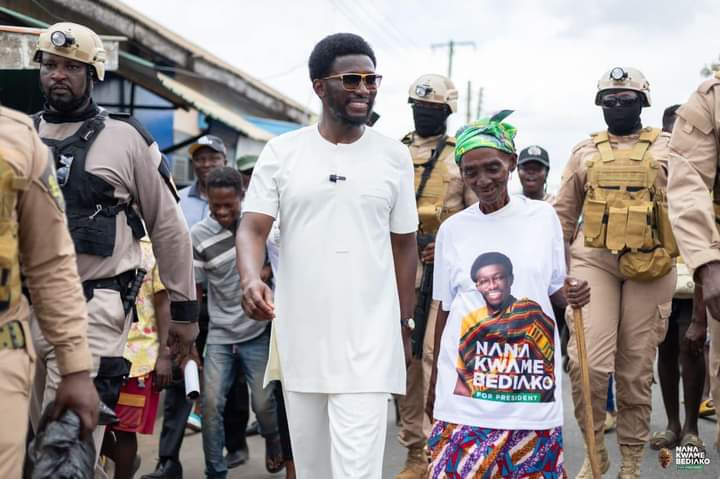Nana Kwame Bediako, known as Cheddar, recently addressed his critics at a rally in Ho on November 6, 2024, where he defended his ambitious plan for Ghana’s future, encapsulated in his “12 Pillars of Economic Transformation.” As an independent presidential candidate and leader of the New Force, he has proposed a government structure based on just 12 ministers. Cheddar drew a parallel to Jesus, who inspired change with only 12 disciples, asserting that a small but efficient cabinet can lead to significant transformations in Ghana. His vision contrasts with conventional political manifestos, which, according to him, have often failed to produce real progress. He emphasizes that a focused and methodical approach to governance is critical for national development.
During the rally, Bediako explained the symbolic importance of the number 12, particularly in the context of his recent ballot selection where he drew the number 12 for the upcoming election on December 7. For him, number 12 represents a pivotal point of change, analogous to how 12 o’clock denotes a critical transition in time. Citing the importance of this number, he expressed confidence that the upcoming year would be marked by substantial improvements and transformations in Ghana. Bediako’s compelling rhetoric aimed to motivate his supporters, particularly the youth, to believe in the possibility of a new direction for the nation, filled with hope and transformation aligned with his governance strategy.
Cheddar’s appeal is particularly directed toward the younger generation, who he believes are the catalysts for future change. He expressed discontent with the current state of affairs in Ghana, urging the youth to take an active role in shaping their own destiny. Acknowledging their previous skepticism regarding his political endeavors, he proclaimed that his movement is gaining momentum and beginning to make a significant impact. He emphasized the urgency of their participation in politics, addressing a general sentiment of disappointment with past leadership. Bediako seeks to harness this discontent into actionable energy for political reform, stating that the youth must seize their potential to create a future absent of the disappointments left by previous administrations.
In outlining the core issues facing Ghana, Bediako identified seven critical areas he labels as the country’s “7 ‘Less’ Problems.” These include unemployment, a devalued currency, pervasive hopelessness among citizens, feelings of ineffectiveness, suppression of voices, and underutilization of national resources. He poignantly articulated that rather than succumbing to despair, Ghanaians should view these challenges as opportunities for growth and improvement. Bediako’s approach to problem-solving is rooted in a belief that adversity can be transformed into the foundation of a prosperous future, thereby encouraging citizens to shift their mindset towards optimism and practical solutions.
Bediako’s commitment to positive change is further illustrated through his articulation of the “12 Pillars” that form the framework of his policy agenda. He passionately asserts that these pillars will provide a coherent and focused direction for the country’s growth trajectory, emphasizing that they will move beyond typical campaign promises to enact real, tangible developments. He frames his political strategy as not merely a proposition but a spiritual and moral movement akin to an “apostolic governance,” which aims to restore hope and confidence in the political system. His passionate delivery resonated with the crowd, galvanizing support and enthusiasm for a vision of a new Ghana.
In conclusion, Nana Kwame Bediako’s rally highlighted his unique approach to political governance and national reformation in Ghana. By leveraging the symbolism of the number 12 and framing it within the context of his “12 Pillars of Economic Transformation,” he seeks to inspire change through effective leadership and proactive governance. His focus on engaging the youth and addressing the core issues that hinder the nation’s progress demonstrates a refreshing commitment to genuine reform. As the December elections approach, Bediako’s vision resonates with many Ghanaians who are eager for a transformative approach to leadership that promises a brighter economic future for the country. He encourages all citizens to embrace the possibilities of tomorrow and invest their energy in a government that aligns with their aspirations for change.














